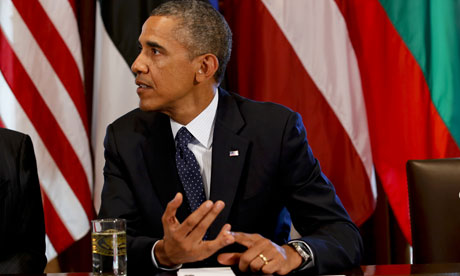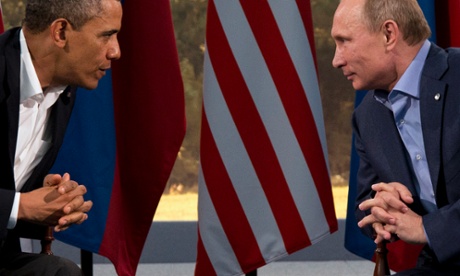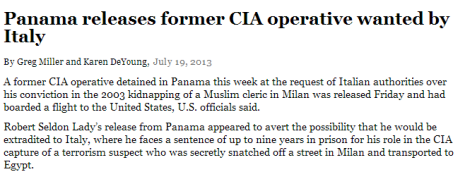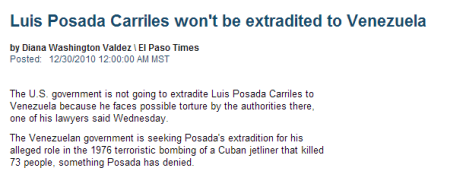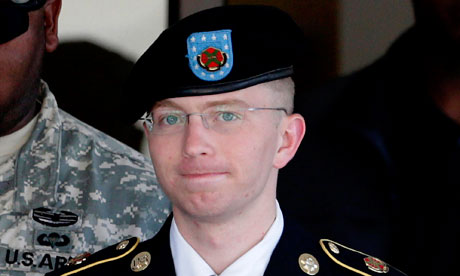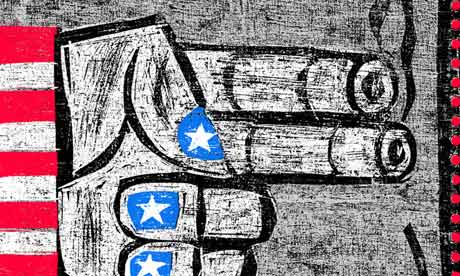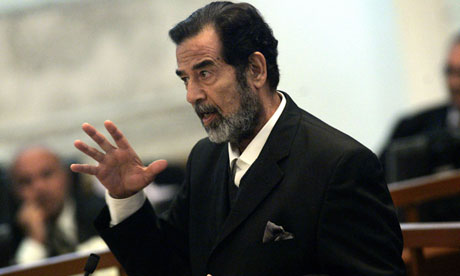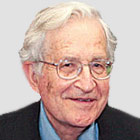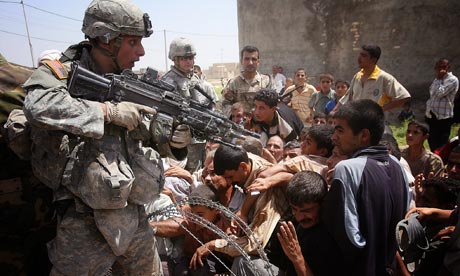This piece is adapted from Uprisings, a chapter in Power
Systems: Conversations on Global Democratic Uprisings and the New
Challenges to US Empire,
Noam Chomsky's new book of interviews with David Barsamian (with thanks
to the publisher, Metropolitan Books). The questions are Barsamian's,
the answers Chomsky's.
Does the United States still have the same level of control over the energy resources of the Middle East as it once had?
T
he
major energy-producing countries are still firmly under the control of
the western-backed dictatorships. So, actually, the progress made by the
Arab spring is limited, but it's not insignificant. The
western-controlled dictatorial system is being eroded. In fact, it's
been being eroded for some time. So, for example, if you go back 50
years, the energy resources – the main concern of US planners – have
been mostly nationalised. There are constantly attempts to reverse that,
but they have not succeeded.
Take the US invasion of Iraq, for
example. To everyone except a dedicated ideologue, it was pretty obvious
that we invaded Iraq not because of our love of democracy but because
it's maybe the second- or third-largest source of oil in the world, and
is right in the middle of the major energy-producing region. You're not
supposed to say this. It's considered a conspiracy theory.
The
United States was seriously defeated in Iraq by Iraqi nationalism –
mostly by nonviolent resistance. The United States could kill the
insurgents, but they couldn't deal with half a million people
demonstrating in the streets. Step by step, Iraq was able to dismantle
the controls put in place by the occupying forces. By November 2007, it
was becoming pretty clear that it was going to be very hard to reach US
goals. And at that point, interestingly, those goals were explicitly
stated. So in November 2007 the Bush II administration came out with an
official declaration about what any future arrangement with Iraq would
have to be. It had two major requirements: one, that the United States
must be free to carry out combat operations from its military bases,
which it will retain; and, two, "encouraging the flow of foreign
investments to Iraq, especially American investments". In January 2008,
Bush made this clear in one of his signing statements. A couple of
months later, in the face of Iraqi resistance, the United States had to
give that up. Control of Iraq is now disappearing before their eyes.
Iraq
was an attempt to reinstitute by force something like the old system of
control, but it was beaten back. In general, I think, US policies
remain constant, going back to the second world war. But the capacity to
implement them is declining.
Declining because of economic weakness?
Partly
because the world is just becoming more diverse. It has more diverse
power centres. At the end of the second world war, the United States was
absolutely at the peak of its power. It had half the world's wealth,
and every one of its competitors was seriously damaged or destroyed. It
had a position of unimaginable security and developed plans to
essentially run the world – not unrealistically at the time.
This was called "grand area" planning?
Yes.
Right after the second world war, George Kennan, head of the US state
department policy planning staff, and others sketched out the details,
and then they were implemented.
What's happening now in the Middle East
and north Africa, to an extent, and in South America substantially goes
all the way back to the late 1940s. The first major successful
resistance to US hegemony was in 1949. That's when an event took place
that, interestingly, is called "the loss of China". It's a very
interesting phrase, never challenged. There was a lot of discussion
about who is responsible for the loss of China. It became a huge
domestic issue. But it's a very interesting phrase. You can only lose
something if you own it. It was just taken for granted: we possess China
– and, if they move toward independence, we've lost China. Later came
concerns about "the loss of Latin America", "the loss of the Middle
East", "the loss of" certain countries, all based on the premise that we
own the world and anything that weakens our control is a loss to us and
we wonder how to recover it.
Today,
if you read, say, foreign policy journals or, in a farcical form,
listen to the Republican debates, they're asking, "How do we prevent
further losses?"
On the other hand, the capacity to preserve
control has sharply declined. By 1970, the world was already what was
called tripolar economically, with a US-based North American industrial
centre, a German-based European centre, roughly comparable in size, and a
Japan-based east Asian centre, which was then the most dynamic growth
region in the world. Since then, the global economic order has become
much more diverse. So it's harder to carry out our policies, but the
underlying principles have not changed much.
Take the Clinton
doctrine.
The Clinton doctrine was that the United States was entitled
to resort to unilateral force to ensure "uninhibited access to key
markets, energy supplies and strategic resources". That goes beyond
anything that George W Bush said. But it was quiet and it wasn't
arrogant and abrasive, so it didn't cause much of an uproar.
The belief
in that entitlement continues right to the present. It's also part of
the intellectual culture.
Right after the assassination of Osama
bin Laden, amid all the cheers and applause, there were a few critical
comments questioning the legality of the act. Centuries ago, there used
to be something called
presumption of innocence.
If you apprehend a
suspect, he's a suspect until proven guilty. He should be brought to
trial. It's a core part of American law. You can trace it back to Magna
Carta. So there were a couple of voices saying maybe we shouldn't throw
out the whole basis of Anglo-American law. That led to a lot of very
angry and infuriated reactions, but the most interesting ones were, as
usual, on the left-liberal end of the spectrum.
Matthew Yglesias,
a well-known and highly respected left-liberal commentator, wrote an
article in which he ridiculed these views. He said they were "amazingly
naive" and silly. Then he explained the reason. He said: "One of the
main functions of the international institutional order is precisely to
legitimate the use of deadly military force by western powers." Of
course, he didn't mean Norway. He meant the United States.
So the
principle on which the international system is based is that the US is
entitled to use force at will. To talk about the US violating
international law or something like that is amazingly naive, completely
silly. Incidentally, I was the target of those remarks, and I'm happy to
confess my guilt. I do think that Magna Carta and international law are
worth paying some attention to.
I merely mention that to
illustrate that, in the intellectual culture,
even at what's called the
left-liberal end of the political spectrum, the core principles haven't
changed very much. But the capacity to implement them has been sharply
reduced. That's why you get all this talk about American decline. Take a
look at the year-end issue of Foreign Affairs, the main establishment
journal. Its big front-page cover asks, in bold face, "Is America Over?"
It's a standard complaint of those who believe they should have
everything. If you believe you should have everything and anything gets
away from you, it's a tragedy, and the world is collapsing. So is
America over? A long time ago we "lost" China, we've lost southeast
Asia, we've lost South America. Maybe we'll lose the Middle East and
north African countries. Is America over? It's a kind of paranoia, but
it's the paranoia of the super-rich and the super-powerful. If you don't
have everything, it's a disaster.
The New York
Times describes the "defining policy quandary of the Arab spring as how
to square contradictory US impulses, including support for democratic
change, a desire for stability, and wariness of Islamists who have
become a potent political force". The Times identifies three US goals.
What do you make of them?
Two of them are accurate.
The
United States is in favour of stability. But you have to remember what
stability means. Stability means conformity to US orders. So, for
example, one of the charges against Iran, the big foreign policy threat,
is that it is destabilising Iraq and Afghanistan. How? By trying to
expand its influence into neighbouring countries. On the other hand, we
"stabilise" countries when we invade them and destroy them.
I've
occasionally quoted one of my favourite illustrations of this, which is
from a well-known, very good liberal foreign policy analyst, James
Chace, a former editor of Foreign Affairs. Writing about the overthrow
of the Salvador Allende regime and the imposition of the dictatorship of
Augusto Pinochet in 1973,
he said that we had to "destabilise" Chile in
the interests of "stability". T
hat's not perceived to be a
contradiction – and it isn't. We had to destroy the parliamentary system
in order to gain stability, meaning that they do what we say. So yes,
we are in favour of stability in this technical sense.
Concern
about political Islam is just like concern about any independent
development. Anything that's independent you have to have concern about,
because it may undermine you. In fact, it's a little paradoxical,
because traditionally the United States and Britain have by and large
strongly supported radical Islamic fundamentalism, not political Islam,
as a force to block secular nationalism, the real concern. So, for
example, S
audi Arabia is the most extreme fundamentalist state in the
world, a radical Islamic state. It has missionary zeal, is spreading
radical Islam to Pakistan and funding terror. But it's the bastion of US
and British policy. They've consistently supported it against the
threat of secular nationalism from Gamal Abdel Nasser's Egypt and
Abd al-Karim Qasim's Iraq, among many others. But they don't like political Islam because it may become independent.
The
first of the three points, our yearning for democracy, that's about on
the level of Joseph Stalin talking about the Russian commitment to
freedom, democracy and liberty for the world. It's the kind of statement
you laugh about when you hear it from commissars or Iranian clerics,
but you nod politely, and maybe even with awe, when you hear it from
their western counterparts.
If you look at the record, the
yearning for democracy is a bad joke. That's even recognised by leading
scholars, though they don't put it this way. One of the major scholars
on so-called democracy promotion is Thomas Carothers, who is pretty
conservative and highly regarded – a neo-Reaganite, not a flaming
liberal. He worked in Reagan's state department and has several books
reviewing the course of democracy promotion, which he takes very
seriously. He says, yes, this is a deep-seated American ideal, but it
has a funny history.
The history is that every US administration is
"schizophrenic". They support democracy only if it conforms to certain
strategic and economic interests. He describes this as a strange
pathology, as if the United States needed psychiatric treatment or
something. Of course, there's another interpretation, but one that can't
come to mind if you're a well-educated, properly behaved intellectual.
Within
several months of the toppling of [President Hosni] Mubarak in Egypt,
he was in the dock facing criminal charges and prosecution. It's
inconceivable that US leaders will ever be held to account for their
crimes in Iraq or beyond. Is that going to change anytime soon?
That's
basically the Yglesias principle: the very foundation of the
international order is that the United States has the right to use
violence at will. So how can you charge anybody?
And no one else has that right?
Of
course not. Well, maybe our clients do. If Israel invades Lebanon and
kills 1,000 people and destroys half the country, OK, that's all right.
It's interesting. Barack Obama was a senator before he was president. He
didn't do much as a senator, but he did a couple of things, including
one he was particularly proud of. In fact, if you looked at his website
before the primaries, he highlighted the fact that, during the Israeli
invasion of Lebanon in 2006, he co-sponsored a Senate resolution
demanding that the United States do nothing to impede Israel's military
actions until they had achieved their objectives, and censuring Iran and
Syria because they were supporting resistance to Israel's destruction
of southern Lebanon, incidentally, for the fifth time in 25 years. So
they inherit the right. Other clients do, too.
But the rights
really reside in Washington. That's what it means to own the world. It's
like the air you breathe. You can't question it. The main founder of
contemporary IR [international relations] theory,
Hans Morgenthau,
was really quite a decent person, one of the very few political
scientists and international affairs specialists to criticise the
Vietnam war on moral, not tactical, grounds. Very rare. He wrote a book
called The Purpose of American Politics. You already know what's coming.
Other countries don't have purposes. The purpose of America, on the
other hand, is "transcendent" – to bring freedom and justice to the rest
of the world. But he's a good scholar, like Carothers. So he went
through the records. He said that, when you studied the record, it
looked as if the United States hadn't lived up to its transcendent
purpose. But then he says that to criticise our transcendent purpose "is
to fall into the error of atheism, which denies the validity of
religion on similar grounds" – which is a good comparison. It's a deeply
entrenched religious belief. It's so deep that it's going to be hard to
disentangle it. And if anyone questions that, it leads to near-hysteria
and often to charges of anti-Americanism or "hating America" –
interesting concepts that don't exist in democratic societies, only in
totalitarian societies and here, where they're just taken for granted.
